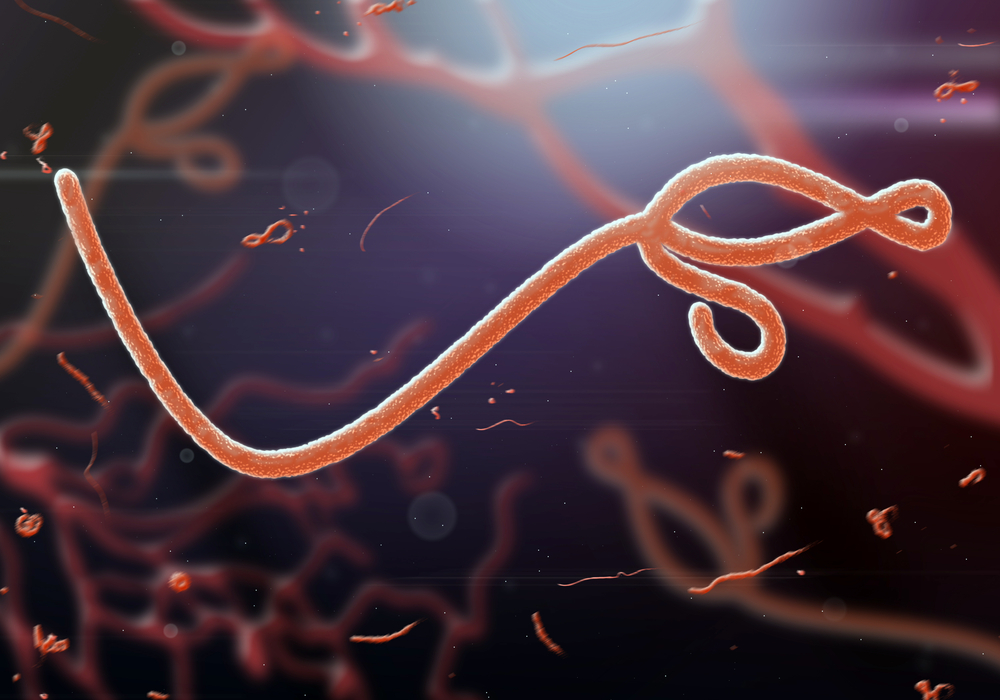10/27/2014

 The Ebola outbreak in West Africa has the U.S. and other nations around the world mobilizing resources to help those already affected and stop the outbreak from spreading further. Recent reports of victims in this country have heightened awareness among the American public and prompted healthcare officials to review safety precautions. With the threat of infection quite low in the U.S. at this time, public education about the Ebola virus may be the best approach to prevention and dispelling fear.
The Ebola outbreak in West Africa has the U.S. and other nations around the world mobilizing resources to help those already affected and stop the outbreak from spreading further. Recent reports of victims in this country have heightened awareness among the American public and prompted healthcare officials to review safety precautions. With the threat of infection quite low in the U.S. at this time, public education about the Ebola virus may be the best approach to prevention and dispelling fear.
The World Health Organization describes the Ebola virus disease (EVD), as a severe illness with a fatality rate around 50%. The virus spreads through human-to-human transmission. Controlling an Ebola outbreak relies upon several interventions, including case management, surveillance and contact tracing, laboratory services, safe burials and mobilization of public health entities. There is no proven treatment to neutralize the Ebola virus, but intervening early to treat symptoms and rehydrate the body improves survival. A range of blood, immunological and drug therapies are under development.
The Ebola virus, first recognized in the 1970s, has had a number of large epidemics over the years, but 2014 seems to be the biggest Ebola outbreak to date. To learn more, we asked Michael Choo, MD, Paradigm’s Chief Medical Officer, some questions about infection and survival.
Are there certain people whose bodies can resist infection, or is survival related to the timeliness and quality of medical care?
There are no known traits that would make an individual less likely to be infected by the Ebola virus, and there are no specific approved therapies available at this time. The timeliness and quality of medical care is most likely a factor to survival. Sustained support of the body’s complex physical and metabolic needs is required so the body’s immune system can ramp up and defend itself.
The healthcare system must also ensure the safety of care personnel. Paradigm Outcomes has prepared infection prevention and control procedures to both guide and protect our staff who may risk exposure to the Ebola virus at hospitals.
What factors affect survival for those who have been infected by the Ebola virus?
The Ebola virus disables the human body’s adaptive immune system and prevents antibody formation to fight the virus. So far, those patients who have evidence of volume depletion (dehydration), renal shutdown, and poor oxygenation are more likely to experience a poor outcome. On the other hand, signs of clinical improvement during the second week of illness seem to be correlated with higher rates of survival. Those that survive Ebola infection do so because their bodies somehow were able to overcome the impact to the immune system and develop antibodies and other immune activities to resist the viral attack.
For now, we can only speculate that the factors affecting survival may involve the make-up of an individual’s immune system, as well as the specific type of Ebola virus spreading at this time. That said, I would presume that since the immune system is impacted, the category of people with decreased or blunted immune systems may be more susceptible then those who may have a healthier immune system in general.
What are the long term medical effects for someone who survives infection?
The Ebola virus has five different species or categories that differ in their virulence to humans and mortality rates range up to 88%. It was formerly known as “hemorrhagic fever virus” due to its clinical manifestations of bleeding due to thrombocytopenia (low platelet count) and coagulation abnormalities, and, of course, septic shock symptoms.
According to current literature, there are no specific casual long term medical effects recognized for those that have survived Ebola infection. However, it is associated with an extended convalescent period characterized by generalized weakness, fatigue, difficult weight restoration, skin sloughing and hair loss.
For more information about the Ebola virus and the current Ebola outbreak, including symptoms, transmission and prevention, visit the Centers for Disease Control and Prevention. While Paradigm Outcomes does not generally manage cases showing only infectious diseases, we stand ready to assist with all your catastrophic injury and complex pain cases.